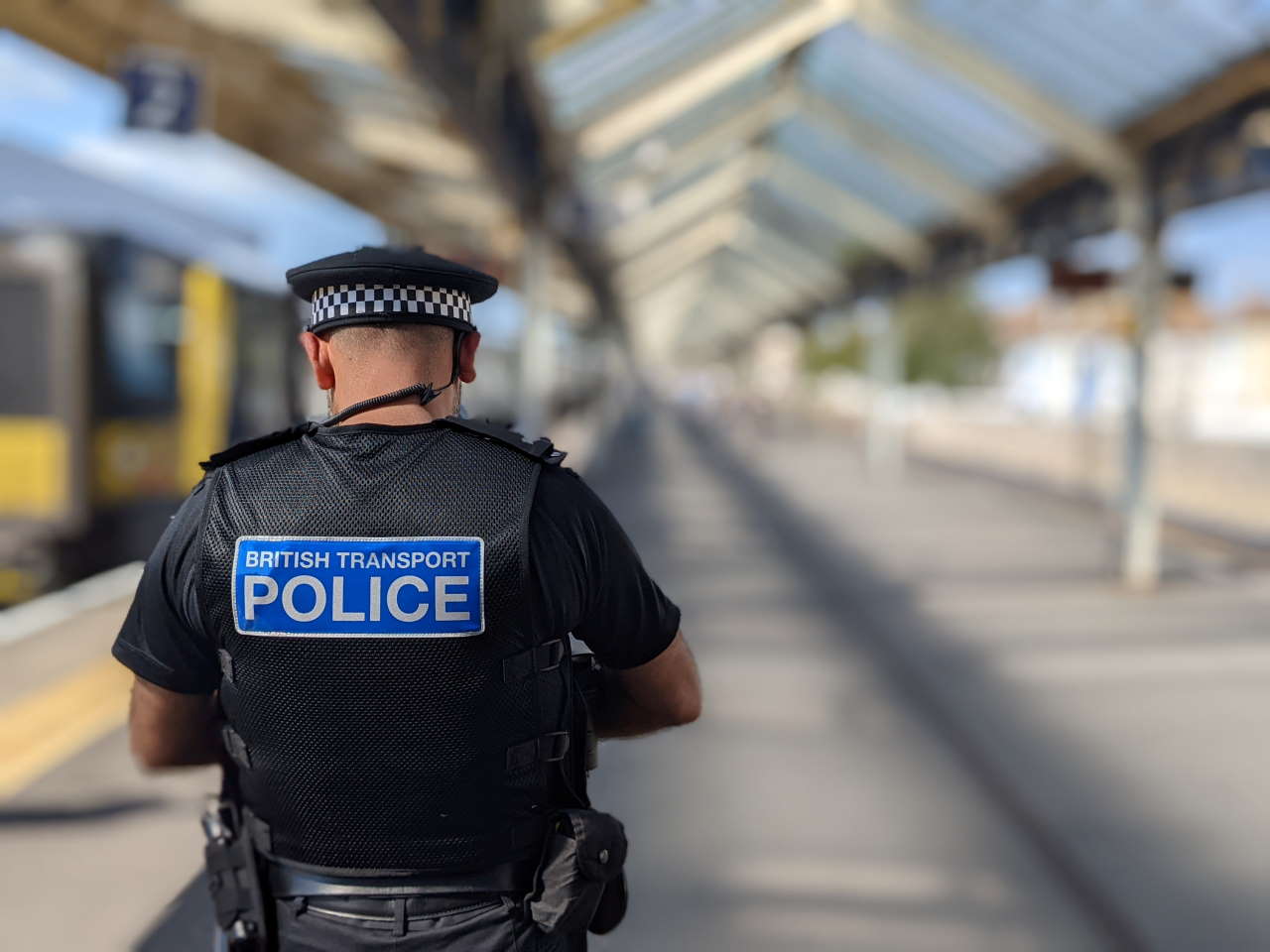This month marks two years since British Transport Police (BTP) set up a County Lines Taskforce.
The taskforce was set up in December 2019 and is funded by the Home Office. Since then the team has made over 1,600 arrests, seized 1,021 lots of drugs and £610k in cash, and removed 345 dangerous weapons from the rail network.
County Lines Taskforce was created to disrupt and apprehend criminals who are using the railway to move drugs across England, Scotland, and Wales, and to safeguard the vulnerable children and adults who are exploited by this activity.
When the Taskforce was first formed, individuals encountered by BTP officers who were caught up in this crime type averaged 18-years-old, which is significantly lower than the national average of 26-years-old.
The Modern Slavery Act was introduced in 2015. Detectives used it to ensure those who exploited individuals in their drugs supply business received severe sentences for their crimes, and the team has secured 18 charges under the act during the last two years.
For example, in October three people were charged in connection with offences under the Modern Slavery Act, and appeared in court after a 16-year-old boy was caught on the railway in possession of Class A drugs. 82 vulnerable children and adults have also been identified by officers and referred to the National Referral Mechanism for safeguarding.
The Taskforce now has a complement of 68 police officers, together with two full-time social workers and two staff members seconded from The Children’s Society who have expertise in the social and charity sectors. These additional staff have further enhanced the team’s focus on safeguarding, ensuring that victims exploited by County Lines gangs receive the support they need to remove them from harm’s way.
Detective Superintendent Gareth Williams, BTP’s County Lines Taskforce lead, said: “From the outset we knew we had to approach our work with safeguarding as a top priority given the young ages of nominals encountered moving drugs on the railway.
“Around 40 per cent of those we’ve arrested over the two years have been under 18-years-old, however we’ve only criminalised one in five of them.
“We’re not looking to criminalise young people, we see them first as victims and are devoted to getting them out of the clutches of toxic gangs exploiting them for their own financial gain.
“Our intelligence-led operations and investigations have resulted in countless drug suppliers behind bars, county lines dismantled and cut off the supply of harmful drugs into our communities.
“The work doesn’t stop here – we’re dedicated to continuing to work closely with our police colleagues and the rail industry to pursue offenders, bring their criminal enterprises to the ground and incarcerate them.”
Crime & Policing Minister, Kit Malthouse, said: “The BTP taskforce has done fantastic work combatting County Lines over the past two years.
“Together with our policing partners we have made huge strides dismantling the vile gangs peddling drugs into our communities, closing down over 1,500 county lines, making over 7,400 arrests and safeguarding more than 4,000 vulnerable adults and children.
“These criminals need to know that we’re not stopping here. Gripping the transport network is a key part of our ambitious 10-year Drugs Strategy, so we’ll be extending the dedicated BTP County Lines Taskforce and making the rail network a high-risk place for these organised crime gangs to conduct their business.”
Case Study:
BTP assisted the Metropolitan Police Service with a missing person inquiry involving a child, who was thought to have left London and forced to work for a county lines gang to clear their debt. The young person was already the subject of a modern slavery investigation in ‘County A’, having previously been located at a ‘cuckooed address’.
The young person was believed to be travelling by train, so the BTP’s County Lines Taskforce conducted enquiries. They identified that the young person had travelled to ‘County B’ and was being held at the address of a local Class A drug user. A search of the address found both the child and a significant quantity of Class A drugs and a mobile phone deemed to be operating a county line.
As a result of BTP’s investigation, three people were arrested for human trafficking and drug supply. The young person who was the victim of the trafficking provided BTP with a statement about their experience and exploitation. The child is now engaged with social services and is no longer involved in county lines, whilst the registered occupier of the ‘cuckooed’ address in ‘County B’ was also safeguarded as a vulnerable adult.





Responses